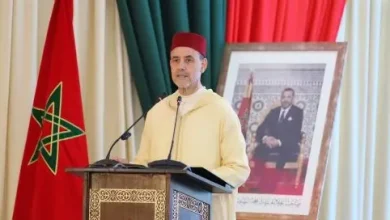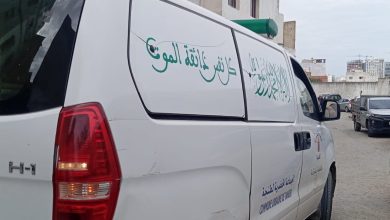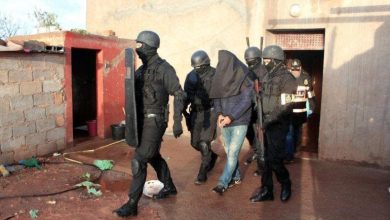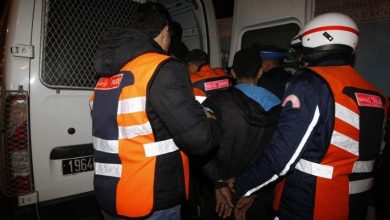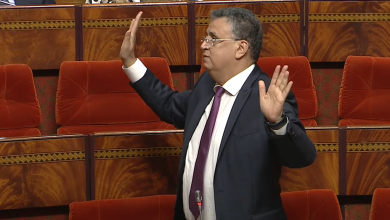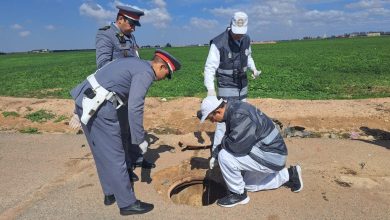Rabat: raising the curtain on the international archaeological and heritage film festival
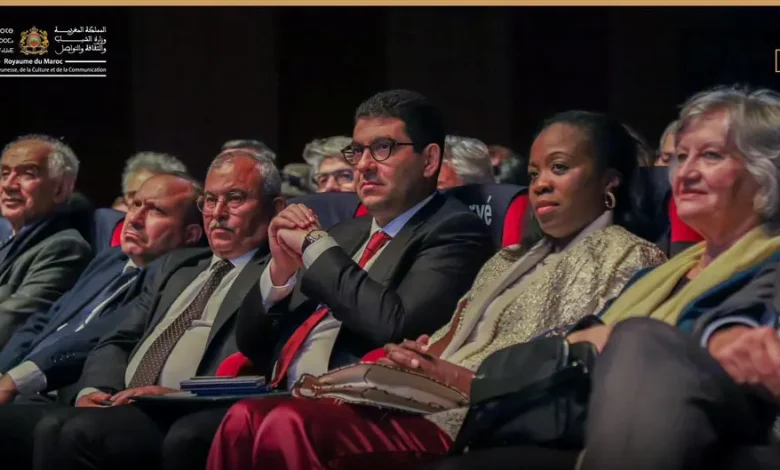
This article was automatically translated from HIBAPRESS, the Arabic version:
HIBAPRESS-RABAT-MJCC
The curtain was lifted on Wednesday evening at the Mohammed V National Theater in Rabat, on the first edition of the International Festival of Archaeological and Heritage Film (FIFAP), in the presence of an audience of personalities from various horizons.
Organized at the initiative of the Center for Studies and Research of the Archaeological and Anthropological Heritage of the Middle Atlas (CERPAAM), this cultural event, which continued until April 26, proposes a rich and diverse programming intended to promote and enhance the Moroccan cultural heritage, notably through the projection of thirty documentary films, including eighteen in competition.
Speaking on this occasion, the Minister of Youth, Culture and Communication, Mohamed Mehdi Bensaid, stressed that the documentary film, the lever of national cultural and creative dynamics, is experiencing a real boom with a notable presence in the cultural and media landscape, affirming that this cinematographic genre is today a vector of sustainability of heritage, dissemination of knowledge and citizen mobilization for the rich heritage cultural, material and intangible, from Morocco.
Mr. Bensaid noted that with the organization of this first festival, placed under the theme “North Africa: a rewriting of human history”, CERPAAM inaugurates an annual meeting, intended to become essential, by devoting three dimensions, namely documentary cinema, Moroccan heritage and prehistory.
Morocco, which is experiencing a global and inclusive dynamic, under the enlightened leadership of SM The King Mohammed VI, pays particular attention to the promotion of culture and the development of human capital, he continued, insisting, in this regard, on the contribution of documentary films to the strengthening of awareness of the importance of preserving heritage, through the commitment of directors to the general public and new generations.
For his part, the archaeologist and director of the festival, Khadija Benlamine, stressed that this cultural event aims to promote Moroccan heritage and archeology, recalling that many discoveries have been made in recent years, including the discovery in the province of Tetouan in the first protohistoric village known to the Maghreb, and the discovery of the oldest agricultural complex in North West Africa.
In the same vein, the president of CERPAAM, Abderrahim Lahrach, said that FIFA uses documentary cinema, virtual reality and 3D reconstructions, in order to educate the general public and make sites more accessible like Chellah and Sijilmassa, adding that fifap is the fruit of a vision aimed at moving the Moroccan archaeological and anthropological heritage, Scientific disciplines, artistic creation and citizen commitment. For her part, the director general of the French Institute of Morocco, Agnès Humruzian, indicated that the creation of this festival undeniably marks an important step in the valuation and dissemination of Moroccan, North African, and more broadly, Mediterranean archaeological and cultural heritage.
“FIFAP will make it possible to celebrate this diverse and abundant heritage, revealed by the many archaeological and historical projects, which have taken place since the 19th century,” said Ms. Humruzian, welcoming the remarkable work undertaken by the various specialists, archaeologists, researchers and documentaries, which will be honored during this festival through meetings with the general public.
And to continue: “The French Institute of Morocco is happy to support this festival for all these reasons, but also because archeology is a discipline in which, for a long time, Morocco and France have very strong relationships”. In this regard, she noted that Franco-Moroccan cooperation in this area, always “rich and fruitful”, will continue to deepen.
The Director General of the HIBA Foundation, Marwane Fachane, stressed, for his part, that this festival is also an invitation to strengthen exchanges, cooperation and management and enhancement expertise in terms of heritage in order to be able to share them with other African countries. In this regard, it has highlighted edifying examples and statistics relating to the economic impact generated by tourist activities related to heritage.
The perpetual secretary of the Hassan II Academy of Sciences and Techniques, Omar Fassi-Fehri, welcomed this “singular” festival that will allow you to immerse yourself in the depths of the past and history to better understand the present, thanks to the evocative power of the image. He is, moreover, returned to the brilliant course of the French paleontologist and associate member of the Hassan II Academy of Sciences and Techniques, the late Yves Coppens, to which a vibrant tribute was paid.
The jury of this edition of the festival consists of Abderrahmane Chorfi (architect and founder of the National School of Architecture), Ali Safi (Moroccan film director), Christophe Goumand (Director of the Nyon Archeology Film Festival in Switzerland), Hassan Aouraghe (University Professor and Archaeological Researcher), Imane Bennani (Doyenne International de Rabat), Nour-Eddine Jallil (professor at the National Museum of Natural History of France) and Souad Rahmouni El Tayeb (Director of Radio Monte Carlo).
This cultural event, organized with the support of the Ministry of Youth, Culture and Communication and the Wilaya of the Rabat-Salé-Kénitra region, benefited from the collaboration of the Amiens Archeology Film Festival, created in 1990, thus enrolling into current Franco-Moroccan cultural cooperation policies.


